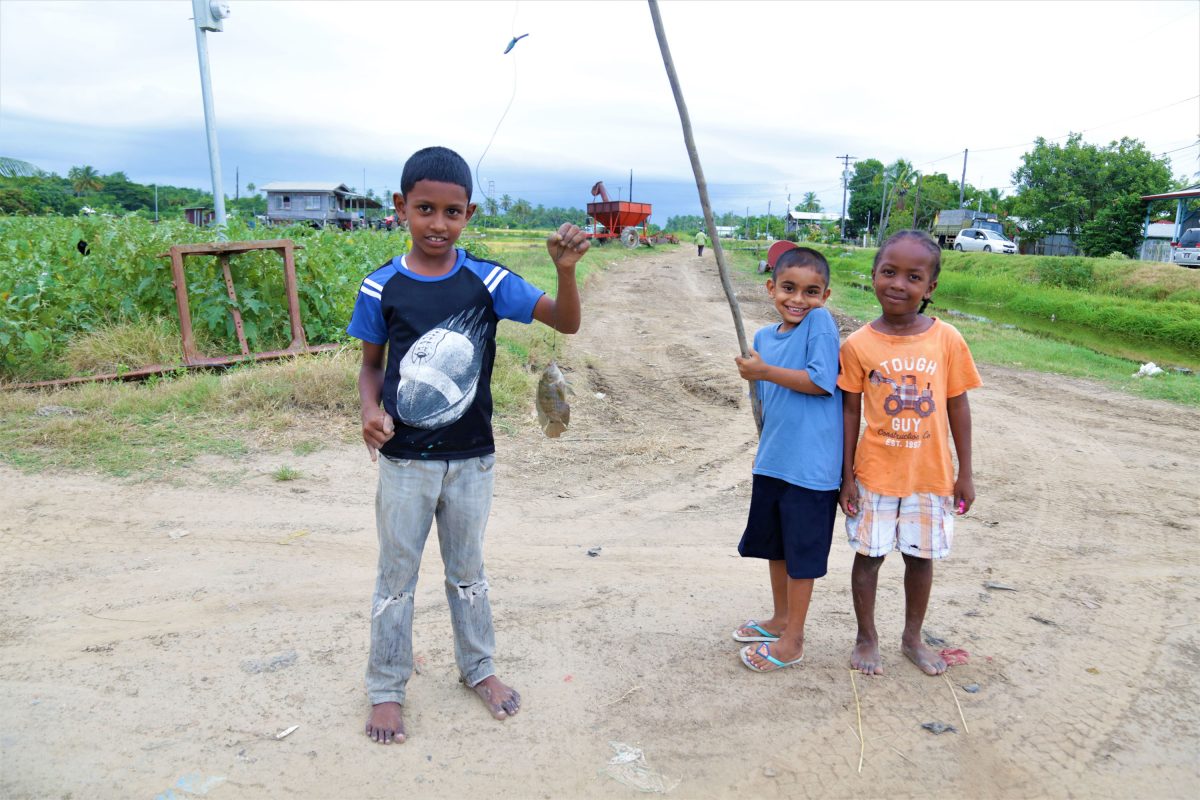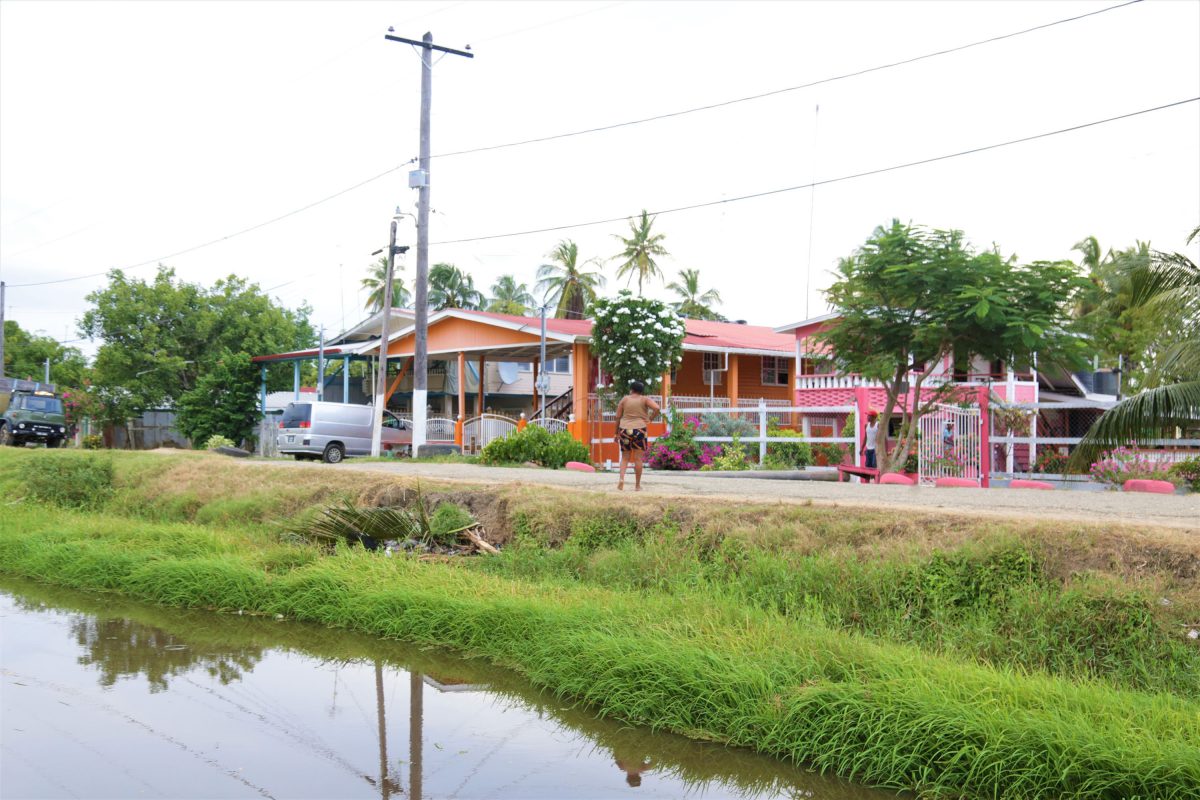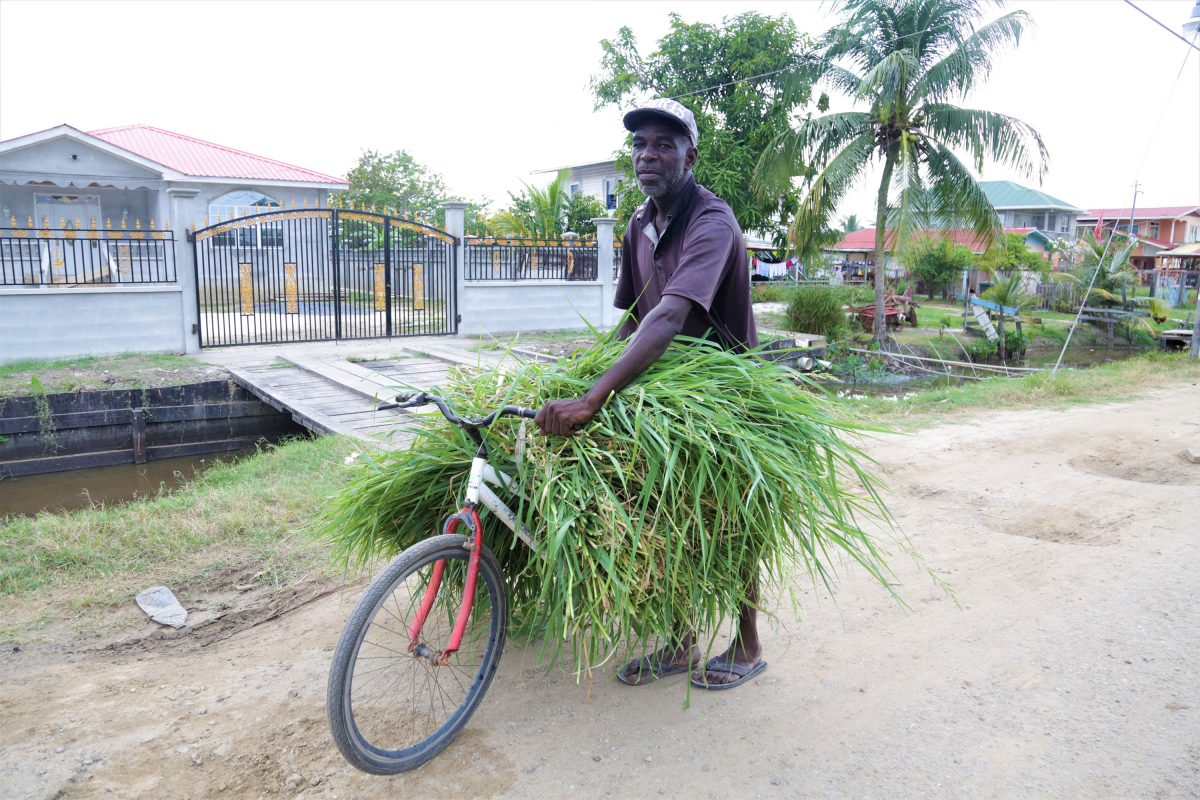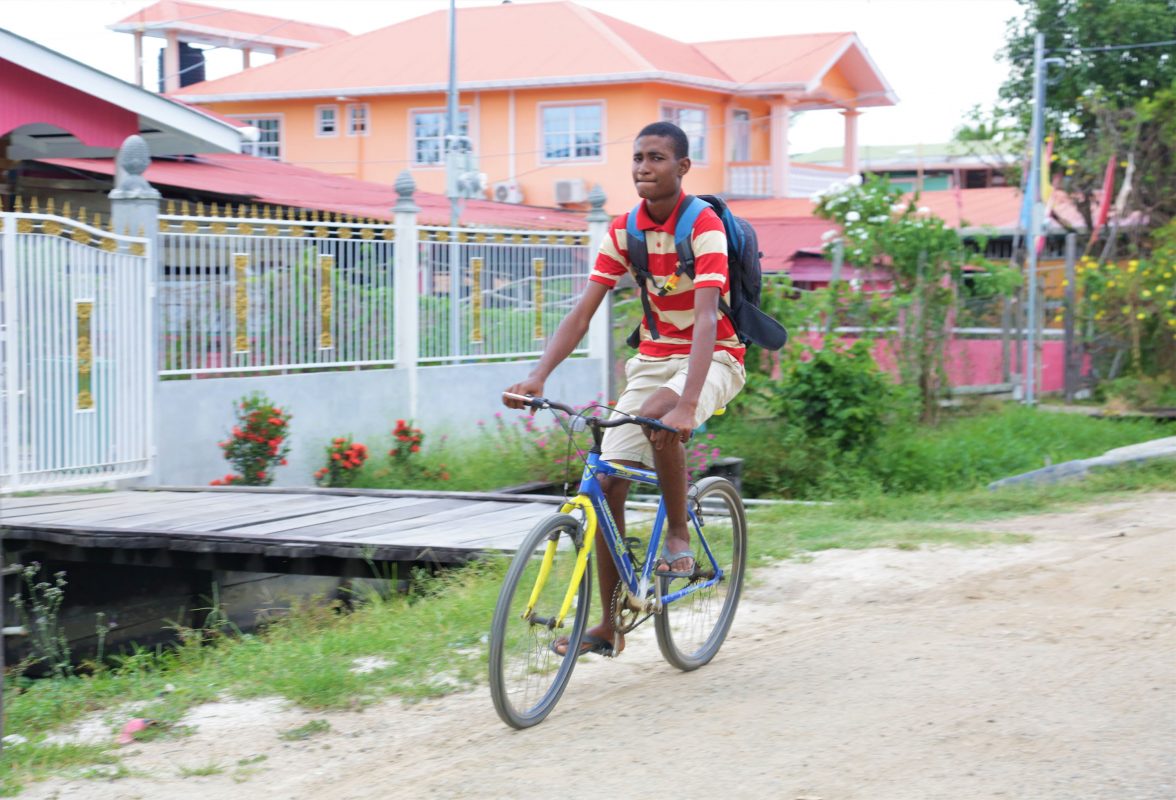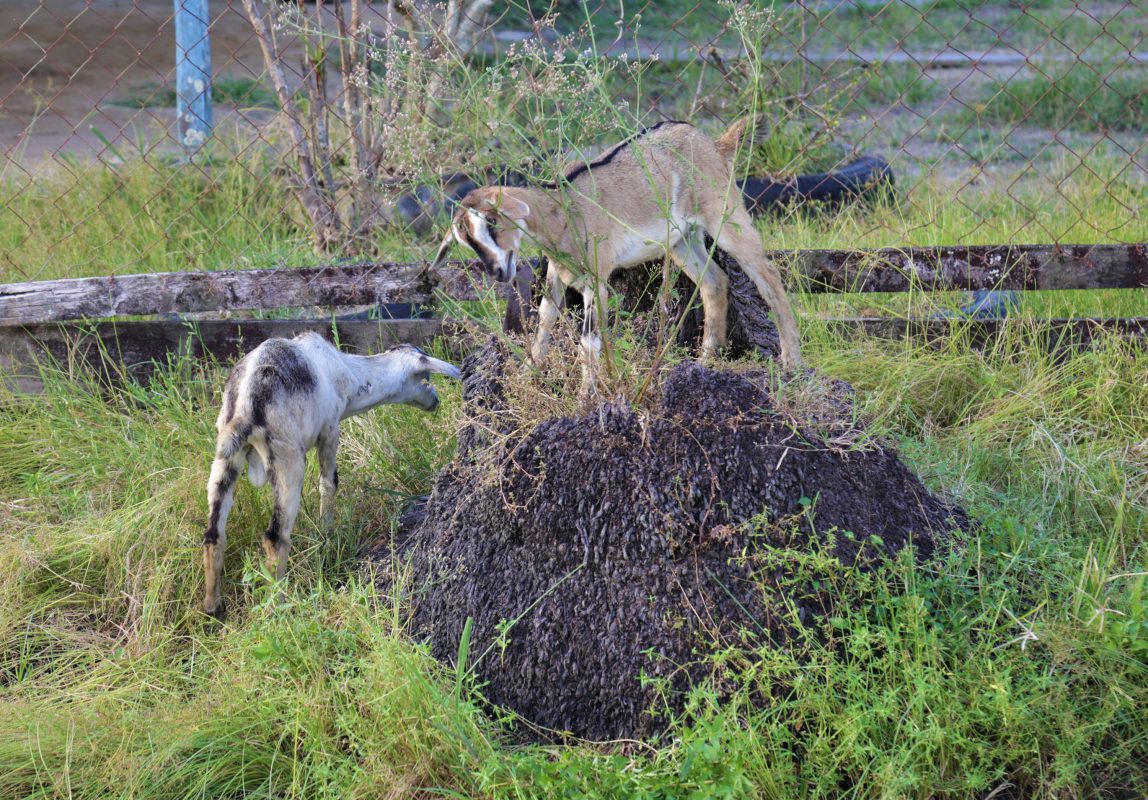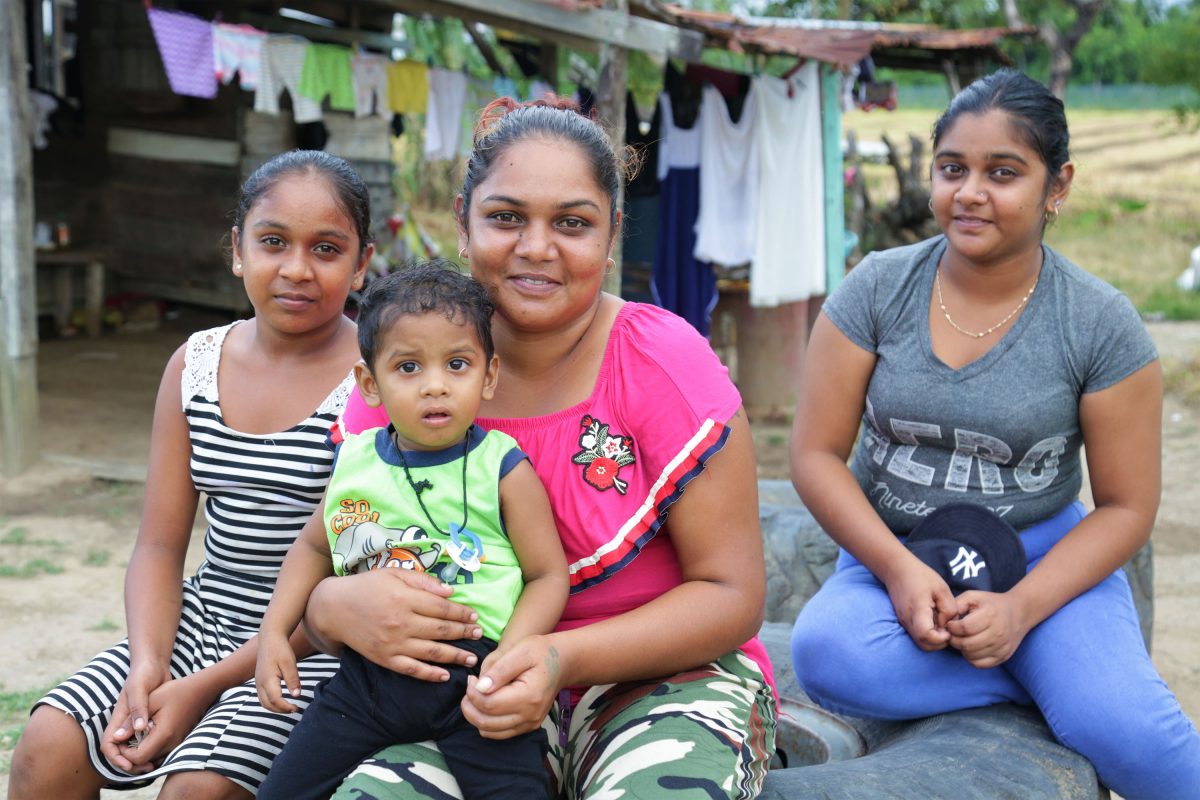Vereeniging is in Mahaica, sandwiched between Supply and Cane Grove. This farming village is home to approximately 200 residents.
The name Vereeniging is of Dutch origin and translates loosely to union. No one I spoke to could say precisely how long the village has been in existence, though it was the general opinion that it dated back to the time of the Dutch. Some of the residents noted also that their long-deceased parents had been born in the village and others stated that almost every resident was related.
To get to Vereeniging, one would have to get a car at the Mahaica Market. The cars go as far as the head of the village, because the road is badly damaged and one then travels the rest of the way on foot. However, one can be taken all the way in by paying the requested $300 or $400 fare.
The community is an old-fashioned one. Older folks visit their neighbours and children run along with their friends barefooted. Men go off to work in the farms and their wives remain at home. Behind the homes neatly cut yellow rice fields add colour to the village. Here and there, bridges over small canals lead to the other side of Vereeniging, where some persons have set up homes on the reserve. The rutted road has worn down to showing the dirt beneath.
Just a handful of men were at home when I visited. Most of them were away in the farms. Some who had returned home for lunch wanted to stay and share but needed to be back in the rice fields. Their excitement for the new crop showed on their sweaty faces as they hurried back to work.
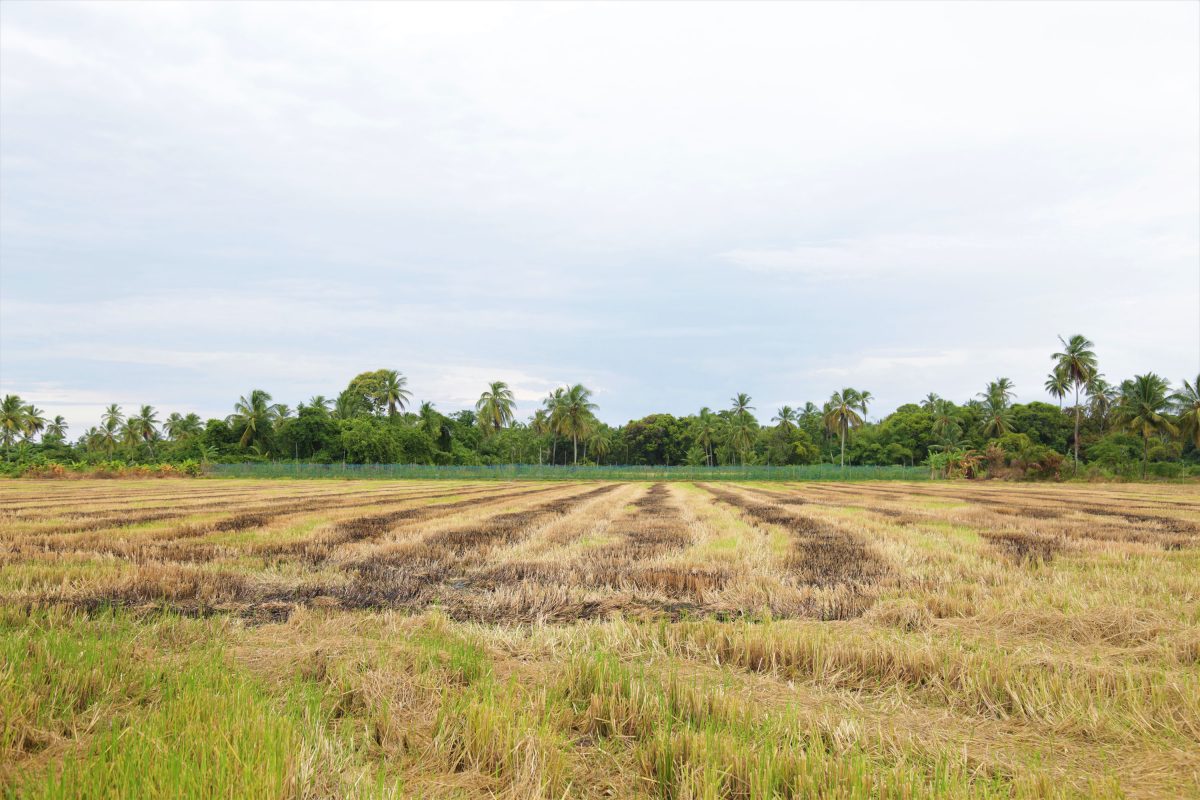
Not all could participate in this economic activity. Sackeechan (only name) and not yet of pensionable age sat in his hammock. Having sustained an injury to the head that rendered him incapable, he envies the ability of his neighbours to work and longs to be back in the fields. He spends his days in his hammock looking out and going to the Mahaicony cottage hospital once a month for clinic.
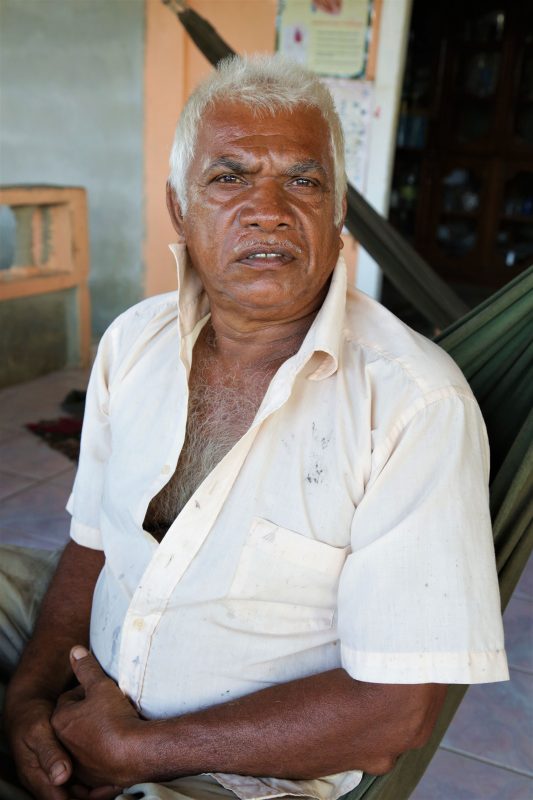
He was born and raised in Vereeniging; so were his parents. Sackeechan attended Supply Primary School, which is today called the Sir James Douglas School. Two of his five grandchildren who live with him attend this school. Two others attend Bygeval Secondary School and the last one the Bishops’ High School. They are the children of his son and daughter-in-law who moved in with Sackeechan and his wife to take care of them.
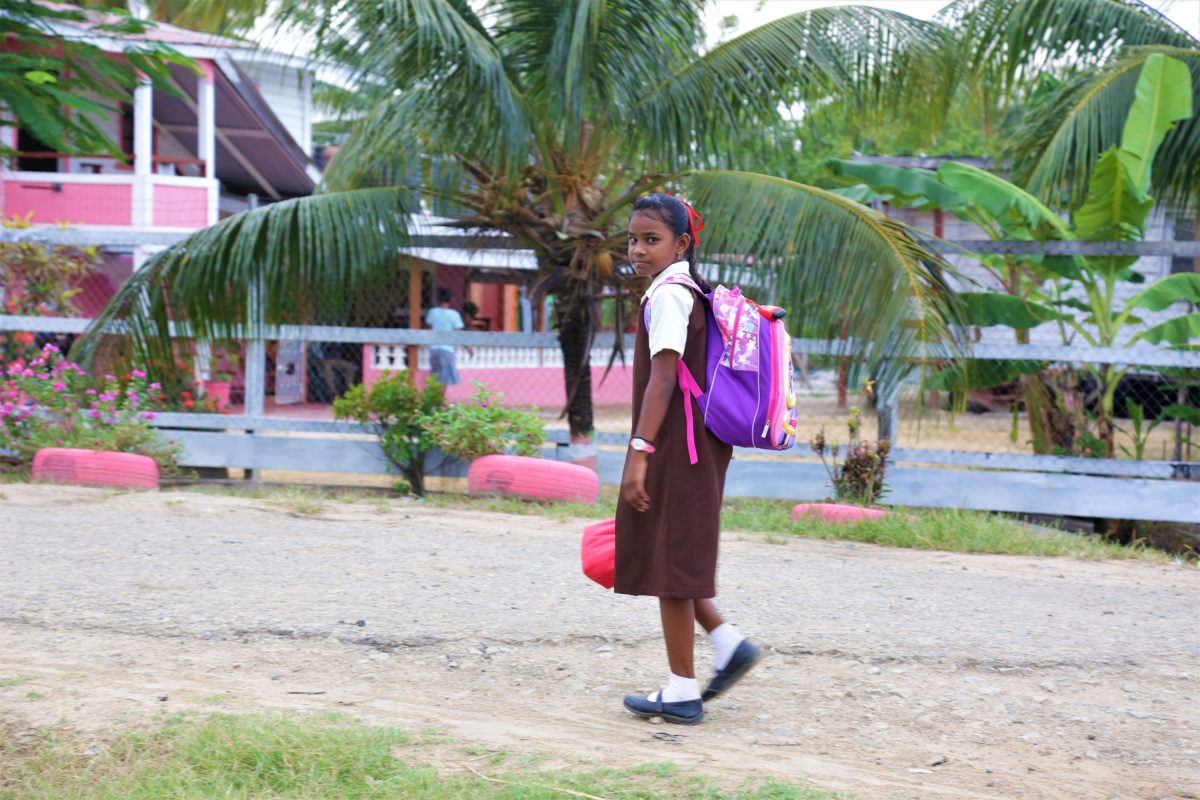
Floods frequent the area and the farmlands are often under water, Sackeechan said. His son has since taken on the responsibility of the farm, but he raised the issue of their rice being damaged by paddy bugs or Gundhi bugs. This insect sucks most of the nutrients from the rice grains and wherever it stops to feast, it lays eggs. Farmers have to spend money on pesticides to kill the bugs, but although the chemical kills the insects, it does not prevent them, according to Sackeechan. And because it does not prevent them, the eggs keep hatching and the farmers keep spraying. Paddy that has been sucked of its grain flies away when the combine harvests the field, which means less income for the farmers.
Sackeechan’s family, like many others, depends on the village shop for groceries. They get vegetables from their farms or from the Mahaica Market on Saturdays.
As it relates to development in the area, the man requests that the road be reconstructed, and the canals cleaned to prevent floods.
Three kids grazed on grass along a fence and inside Anita Ramgobin sat in her hammock looking out. A native of the village, Ramgobin recalled that life was hard. She was very young when her father and mother separated, leaving her mother to fend for her and her three siblings. Her mother, she said, spent her days in the backdam working hard to send them to school. It was her mother’s dream to make a better life for her children and she tried very hard to send them to school. However, only the youngest completed her secondary education. Nonetheless, Ramgobin said, she will always be grateful to her mother for trying her best to make a better life for her.
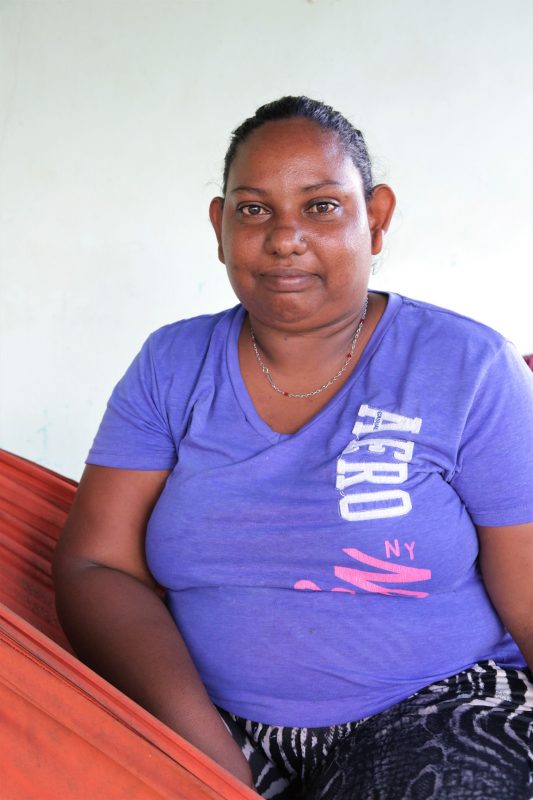
Ramgobin remembers asking her mother to go with her into the backdam to work along, but her mother insisted that school came first and promised that she could join her when she was old enough and out of school. Ramgobin first ventured into the farms when she was 16.
Sadly, her mother passed away just three months ago. It has been hard on the family.
Ramgobin shared that at one time she had left the village with her common-law husband to live in Berbice but returned soon after. Vereeniging worked out better for the couple because there are more farms in the area. Her husband works as a labourer on one of the farms. Berbice, she added, does not have steady work.
The villagers, Ramgobin added, are like one big extended family; her sister lives with her family across on the reserve and other uncles and aunts live in the village also.
When there is no rice crop, the men attend to their cash crops instead so there is year-round produce and market to look forward to.
In the vicinity of the house she rents is a locked up mandir which served as a place of worship for the family who lived there before; they have since migrated. Ramgobin, like many other villagers, is Hindu. There are no temples in Vereeniging, no places of worship for that matter, everyone has to go to nearby villages.
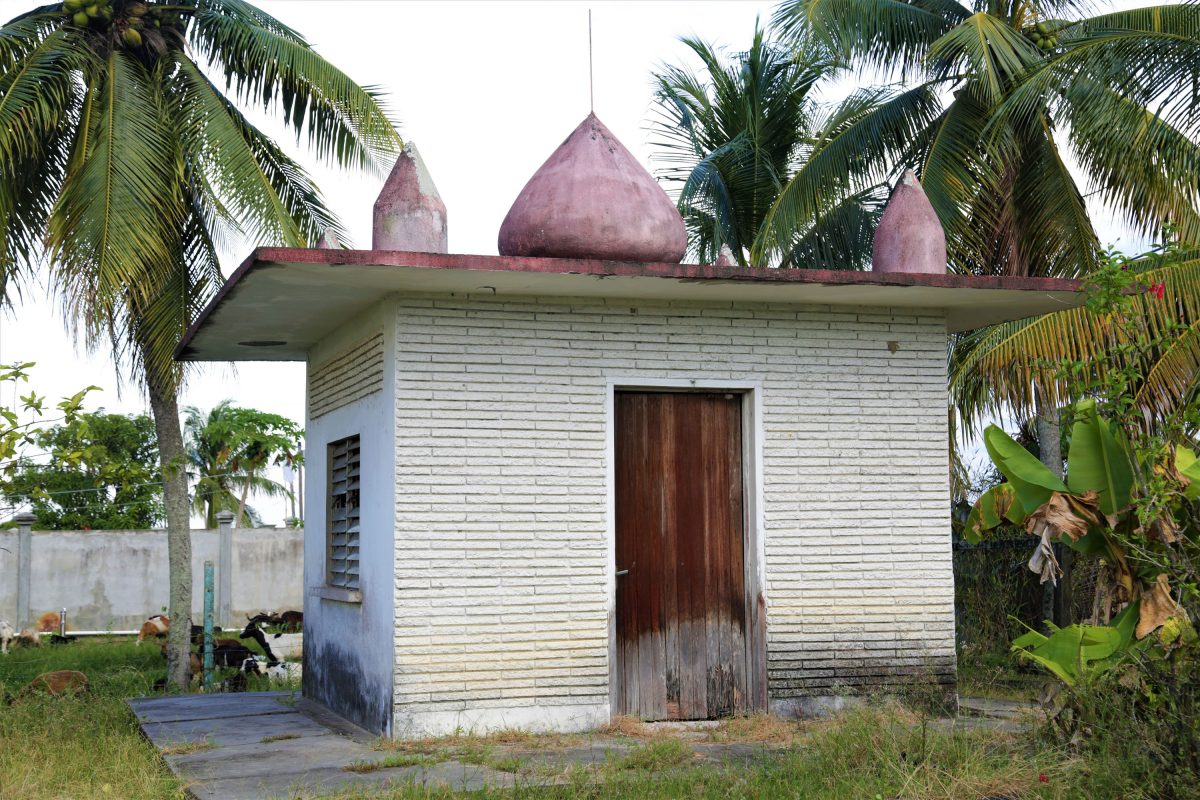
She also pleaded for a better road explaining that when the rice crop is on and the rains come, the road is a mess. Sometimes she has to fetch her niece along parts of the village and get her feet cleaned up when they get out before she heads off to school.
Ramchand (only name given) had just arrived home on his tractor when we met.
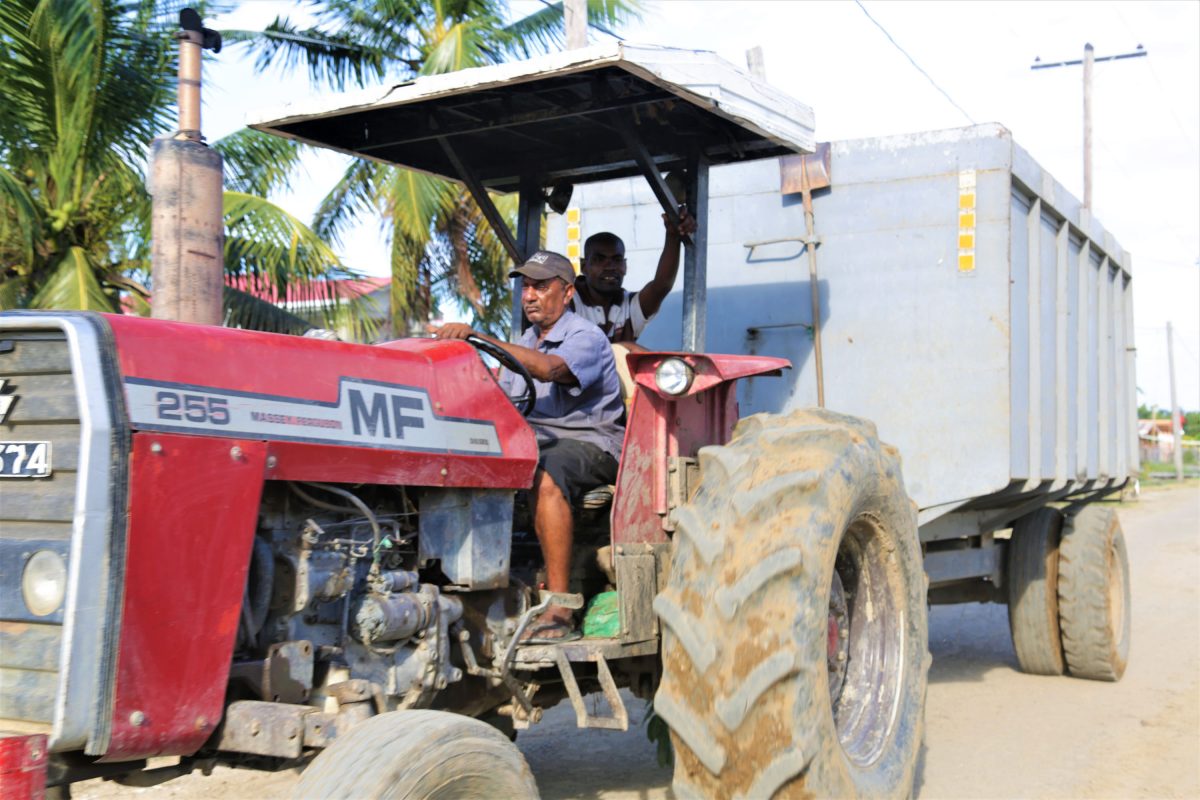
Ramchand hails from Vereeniging. His boyhood days were spent either in school or on the farm. “In this village we do mostly self-help. I started working in the backdam when I was 14 years,” he said. “I started working with my father, then work with myself. We were 12 brothers and sisters in all. Almost everybody here work in the farms. This is a very quiet and lovely area. We don’t have problem with anything or anybody else. The only problem we got here is the road.”
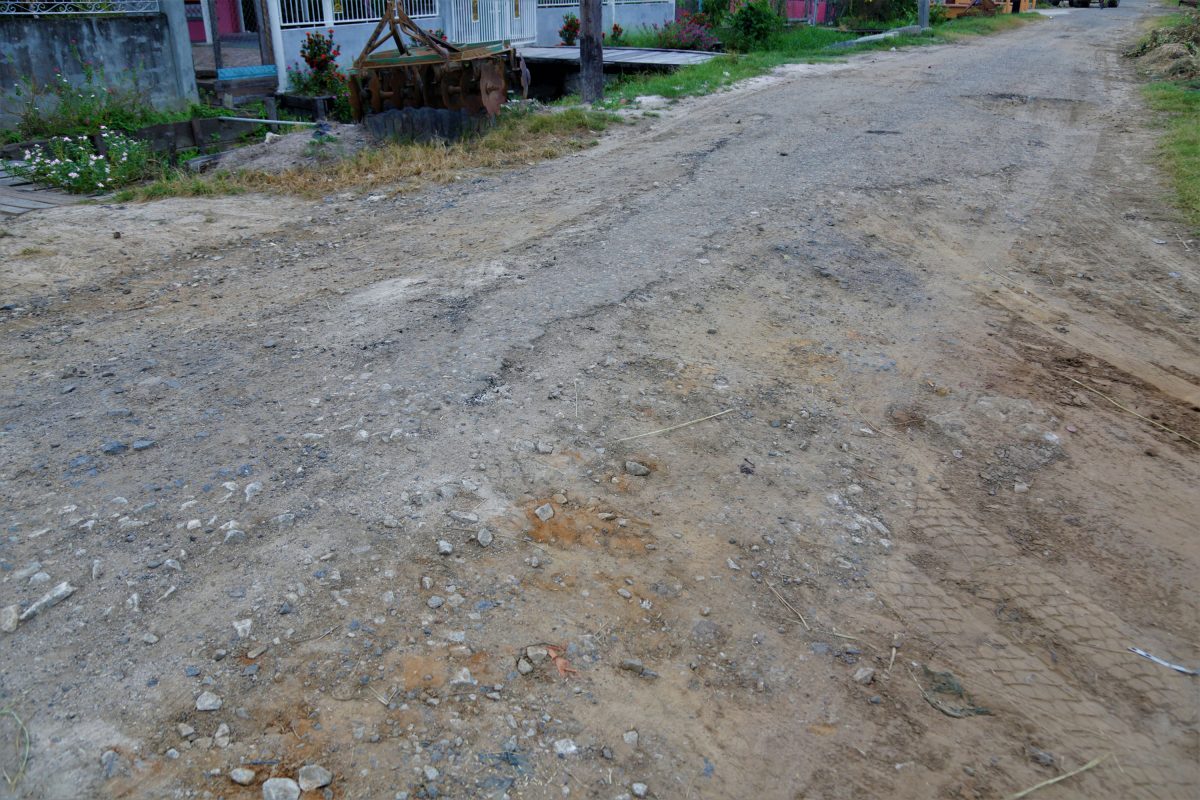
Despite being a pensioner and having undergone heart surgery, he still farms as he said that he cannot stop working. He believes in working his own farming machines instead of having other persons working them and damaging them. Though he comes from a large family, Ramchand and his wife have only one son who works along with him on the farm.
Speaking about the paddy bug, he lamented, “We spray many times you know, plenty times. It always coming back. Sometimes you spray today, and you go back tomorrow, and you got to spray again. They lay a lot of eggs and the eggs keep hatching. The drug that we need to use to spray them is expensive and not that alone but then when you got to find somebody to spray, its additional money that coming out. Farming is the only thing we do here; we don’t have anything else to do. It’s not always profitable; sometimes we make it, sometimes we lose. They [the rice mills] pay you according to the grade of your paddy because when the bug damage it, the grade becomes low.”
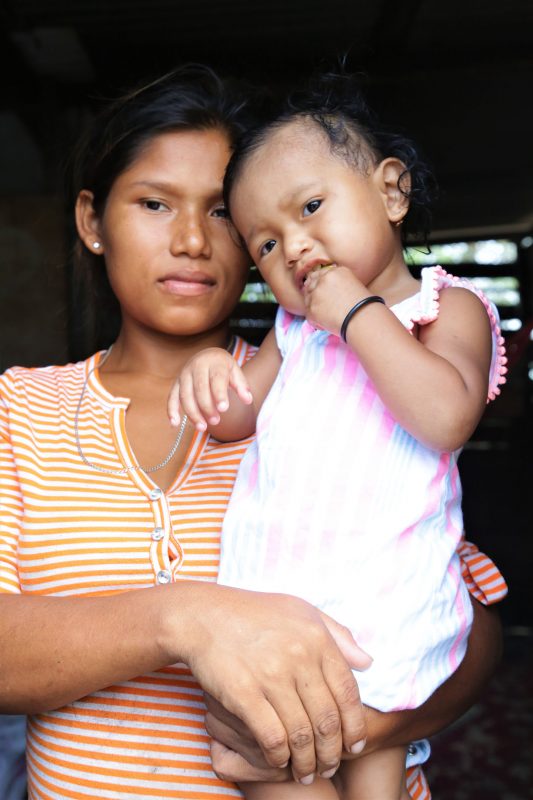
Across on the reserve, Zeelian Daniels was getting her baby daughter Elsa ready for an afternoon walk. Daniels is originally from a village called Arakuru in Region One (Barima/Waini). She settled in Vereeniging more than a year ago and said it was like a step up for her because where she came from, they do not always get fresh vegetables and meat. In Vereeniging, she has easier access to fresh foods, health services and public transportation. In addition, the community has electricity and potable water unlike Arakuru.
Even the deteriorated road is better than the ones she grew up traversing. For Daniels, Vereeniging is perfect, and she could not ask for anything more.
